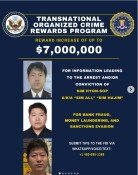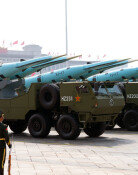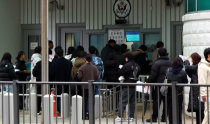[Editorial] Government Should Stop Misusing Statistics
[Editorial] Government Should Stop Misusing Statistics
Posted September. 10, 2005 08:08,
Policies based on sham statistics are very unlikely to succeed. Only honest use of accurate statistics can increase the credibility and effectiveness of the policy. Being a statistics power truly is one of the conditions to become an advanced country.
The government quoted U.S. figures to raise effective property tax rates from 0.15 percent to one percent, the main point of the real estate comprehensive measures released by the government on August 31. Taxation manager Kim Yong-min at the Ministry of Finance and Economy (MOFE) said, Reports of the Korea Institute of Public Finance (KIPF) find that property tax rates in the U.S. are slightly over one percent on average, based on which we set our target at one percent. When Dong A-Ilbo interviewed the responsible staff at the KIPF for confirmation, he said, Ive neither read nor written a report that said the U.S. property tax rate is one percent.
The MOFE released findings for clarification yesterday, which stated, The effective property tax rate, particularly the housing tax rate, of 51 major U.S. cities stand at 0.38 to 3.88 percent, and that in Washington D.C. is 1.65 percent. There are over 22,000 cities and counties in the U.S., which makes 51 cities a mere 0.2 percent of the total. This fact was distorted to raise the domestic tax rate more than six-fold. This reminds us of the time when President Roh Moo-hyun said that students from Gangnam accounted for 60 percent, basing his argument on the pool of 53 students accepted through special exams for expatriates, a 1.3 percent of over 4,000 Seoul National University freshmen.
The property tax in the U.S. is determined by residents agreement in return for public service provided by local governments. Therefore, the residents voluntarily pay a high sum in property taxes, which is fully reinvested in regional development. Meanwhile, the Korean government acts as a robin hood that levies heavy taxes on apartments of middle class tenants in certain areas and distributes that profit to other regions.
The housing price in Korea reaches 6.2 times the annual income of households on average, which indicates that annual salaries of 50 million won are associated with housing prices of 310 million won. In the U.S., a 50 million won salary would correspond with a housing price of 185 million won, a 3.7 fold. In other words, when annual salaries are 50 million won in both countries, we have to pay 3.1 million won while Americans only have to pay 1.71 million in taxes despite the one percent property tax rate. Given the annual compensation gap between the two countries, the divide of tax burden is multifold.
The government must stop unveiling statistics that mislead the people and policies.





![[오늘과 내일/우경임]교육부 장관인가, 교사부 장관인가](https://dimg.donga.com/c/138/175/90/1/wps/NEWS/IMAGE/2025/12/26/133045801.1.png)

